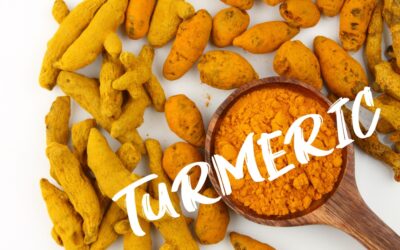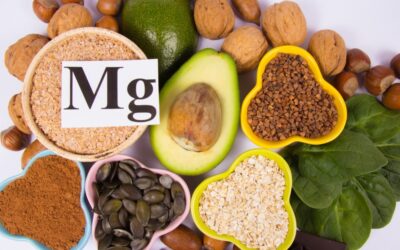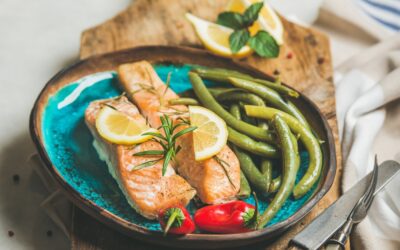Sprouting Goodness: A Step-by-Step Guide to Growing Broccoli Sprouts
Broccoli sprouts are miniature nutritional powerhouses that pack a punch of health benefits. Bursting with vitamins, minerals, and antioxidants, these tiny green sprouts are known to have 10-100 times more nutrients than their mature counterparts. Growing your own broccoli sprouts at home is a rewarding and cost-effective way to add a little spice to a salad or sandwich and boost your well-being. In this article, we will guide you through the simple steps of sprouting broccoli seeds, allowing you to enjoy a fresh and nutrient-dense addition to your meals.
Step 1: Gather the Materials to Grow Your Broccoli Sprouts
To get started, you will need a few basic supplies:
- Broccoli seeds: Look for organic, non-GMO broccoli seeds, which are easily available at health food stores or online.
- A wide-mouthed mason jar or sprouting tray: Choose a jar or tray that allows for adequate airflow and drainage. I personally prefer the jars as they take up less space on the counter and I have heard from others that the trays are hard to keep clean.
- Cheesecloth or mesh screen: This will help strain the water during rinsing while preventing the seeds from escaping.
- Water: Make sure you have a reliable source of clean water for rinsing the sprouts.
Step 2: Prepare the Seeds
Measure out approximately two tablespoons of broccoli seeds. Rinse them thoroughly under cool water to remove any debris or dust. Place the seeds in a clean jar or sprouting tray, ensuring there is enough space for the seeds to expand and grow.
Step 3: Soak the Seeds
Fill the jar or tray with water, covering the seeds entirely. Allow the seeds to soak for 8-12 hours, preferably overnight. Soaking the seeds initiates the germination process and softens the outer seed coat.

Step 4: Drain and Rinse
After the soaking period, drain the water from the jar or sprouting tray. Rinse the seeds under cool water and drain again. This step helps remove any residual compounds and encourages a clean growing environment for the sprouts.

Step 5: Begin the Sprouting Process
Place the rinsed seeds in the jar or sprouting tray and cover the top with a cheesecloth or mesh screen. This allows for proper airflow and prevents dust or insects from contaminating the sprouts. Position the jar or tray at an angle, allowing excess water to drain out and air to circulate.

Step 6: Rinse and Drain
Over the next few days, you will need to rinse the sprouts twice a day, ideally in the morning and evening. To do this, fill the jar or tray with water, swish it around gently, and drain off the excess water. Ensure that the sprouts have enough moisture without sitting in a pool of water, as this may lead to mold formation.

Step 7: Observe Growth
As you continue to rinse and drain the sprouts, you will notice tiny green shoots emerging from the seeds within a couple of days. Keep them in a well-ventilated area, away from direct sunlight. Ensure the sprouts are not overcrowded, as they need space to grow.

Step 8: Harvest
After approximately 5-7 days, your broccoli sprouts will be ready for harvest. At this stage, the sprouts should have developed two small leaves. Rinse them one final time to remove any hulls or loose seeds. Gently pat the sprouts dry with a clean paper towel or use a salad spinner.

Step 9: Removing “unsprouted” seeds
This step isn’t absolutely necessary, however, to avoid getting little brown seeds stuck in your teeth, I recommend removing them. Start by moving your seeds from the jar to a large bowl. Fill the bowl with room temperature clean water. Use your fingers to separate the staulks. The seeds will float to the top. Put your hand in the water and hold the staulks down. Tip the bowl to dump out the water with the seeds.


Step 10: Drying the Broccoli Sprouts
Place the clean staulks in a salad spinner to remove excess water


Step 11: Storage and Enjoyment
Once dry, transfer the sprouts to a clean, airtight container or a plastic bag with a few holes for air circulation. Store them in the refrigerator, where they will remain fresh for up to a week.

Disclosure: This post contains affiliate links.
Turmeric: Health Benefits and Food Sources
There is a growing interest in people wanting to take control of their health and “longevity”. With this in mind, curiosity is growing surrounding the best “diet” for overall health and disease prevention. And of course, the jury is still out on whether or not there...
A Guide to Magnesium: The Mineral That Can Do a 180 on Your Health
Magnesium is an essential nutrient required to maintain overall health. However, nearly half of Americans don’t meet daily magnesium intake recommendations. Magnesium deficiency is associated with several diseases. It is vital to ensure your food intake boosts the...
Managing Stress with Diabetes Made Easy: Tips That Tip the Scale in Your Favor
Over 537 million people around the world live with diabetes. The condition affects a whopping 10.5% of the adult population, and there’s no denying how difficult it can be to manage it. One day, you’re living life to the fullest—eating your favorite cake, regularly...
Exploring the Interplay Between Cancer Risk, Physical Activity, and Obesity: Unveiling the Pathways to Prevention
In an era where health consciousness is gaining paramount importance, the relationship between cancer risk, physical activity, and obesity has emerged as a significant area of investigation. As you and I - and many of our friends - are impacted by this scary disease,...
Hormetic Stress: The Good Stress For A Happy Healthy Life
It’s so easy to be tempted by the allure of comfort. In fact, technology and society have convinced us that this is of the upmost importance. You’re cold? Turn on your thermstat. Don’t like that noise? Drown it out with “white noise”. Feeling hungry? No problem. The...
Changing Food Behavior: Get out of Food Prison
Changing Food Behavior: Easily Give Up Junk Food Changing a food behavior, particularly one that activates the brain’s reward pathways—such as binging on ice cream or sugary drinks while watching a movie, requires an insane amount of willpower. It’s tough to change...
Sarcopenia: Impact on health and longevity
Implications Of Sarcopenia On Health And Longevity It is easy to assume that losing some strength is a “normal part of aging”. In fact, maybe you have even heard this from your healthcare providers. The truth is that getting “weaker” as we age is not “normal” and...
Grilled Mackerel Fish Taco Recipe
Grilled Mackerel Fish Tacos Grilled Mackerel Fish Tacos are a favorite recipe we have adapted from traditional Mexican cuisine. Instead of using tilapia or cod, we have added mackerel for its high concentration of healthy omega 3. It’s so good for brain health! In...
Avocado Cold Summer Soup Recipe
Avocado Cold Summer Soup Recipe Avocado Cold Summer Soup is refreshing when the temperatures begin to rise. This soup can be created with chicken stock or vegetable stock presenting a vegetarian option. Enjoy Avocado Cold Summer Soup as a starter for just about any...
Lemon Garlic Salmon Recipe
Lemon Garlic Salmon Lemon Garlic Salmon has a Mediterranean vibe! Here we’ve added a drizzle of olive oil, lemon, and oregano to create a light and lively dish. This recipe is created for two people based on suggested serving sizes of 3 to 4 ounces of salmon per...











